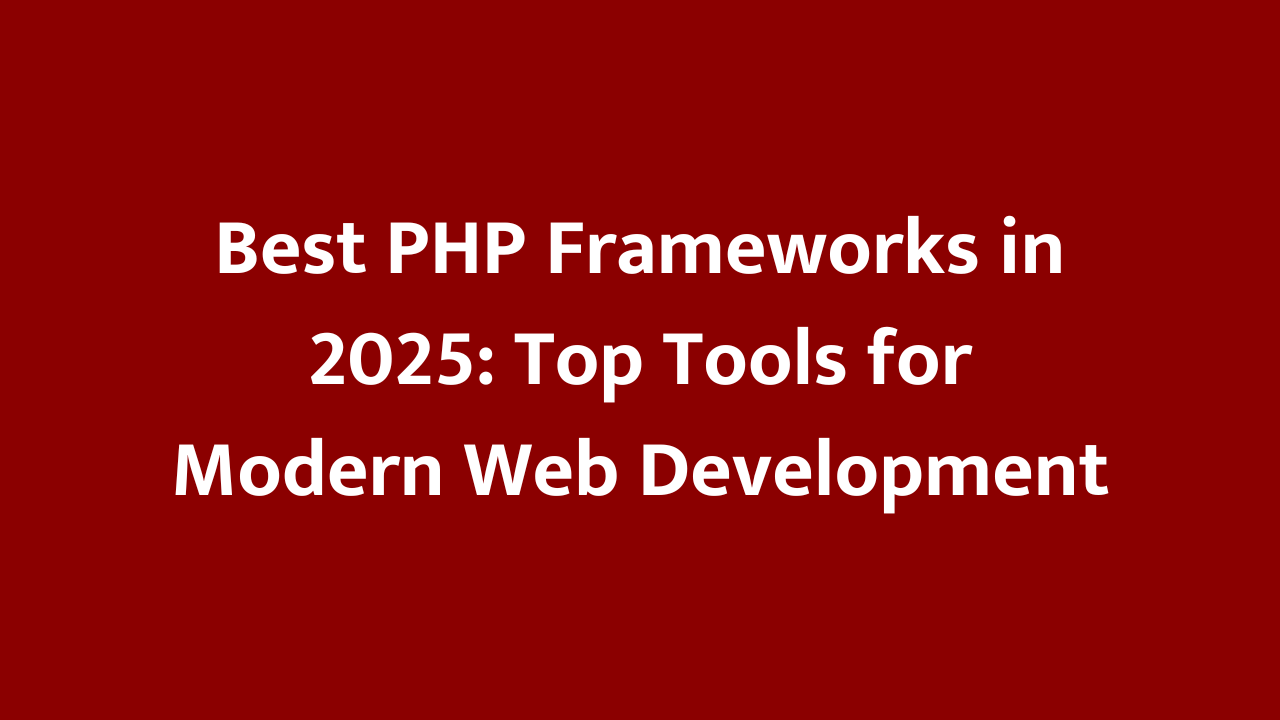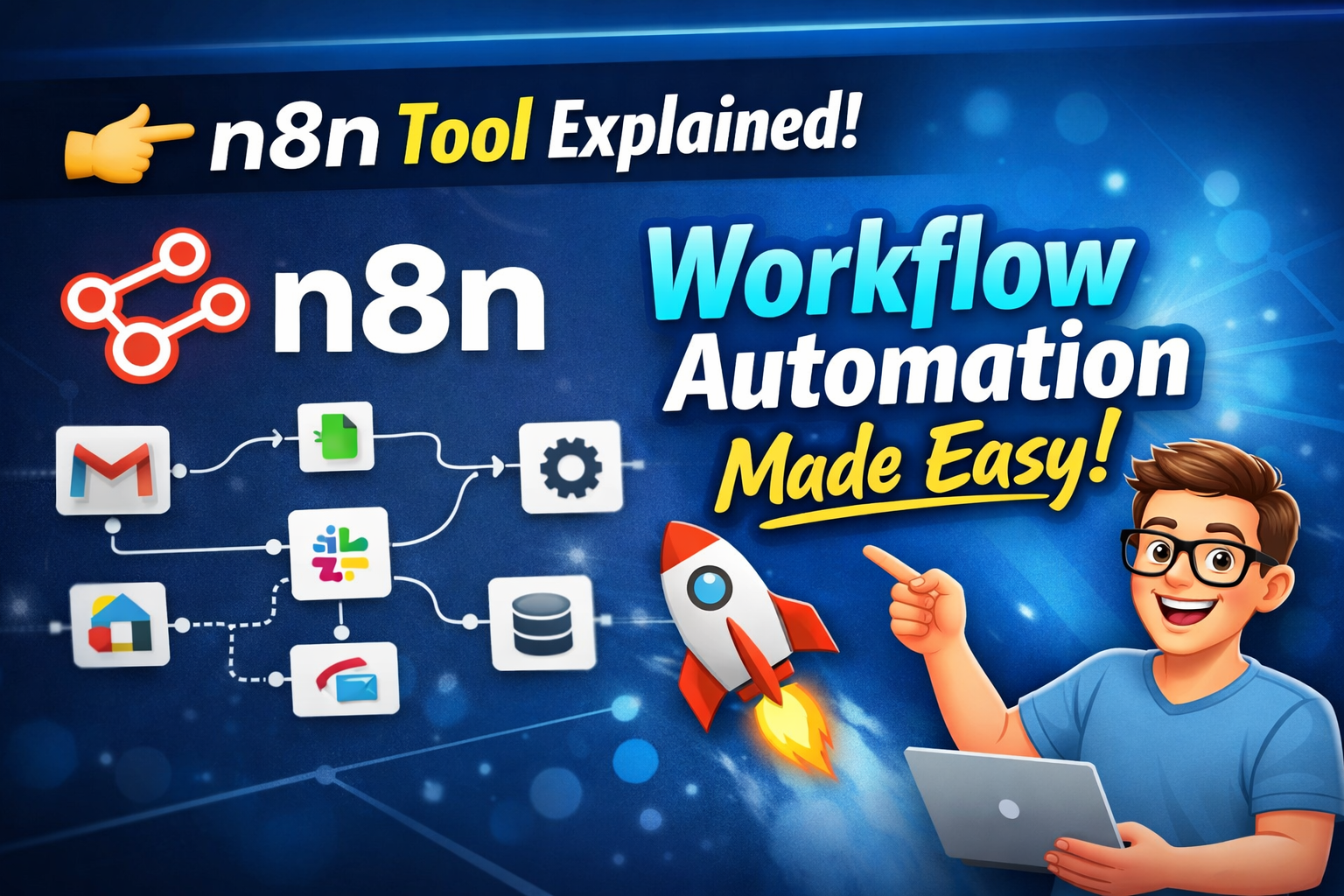Best PHP Frameworks in 2025: Top Tools for Modern Web Development
Discover the best PHP frameworks of 2025 for web development. Learn about Laravel, Symfony, CodeIgniter, and more. Choose the right framework for your project!
PHP frameworks are indispensable tools for developers building robust, scalable, and secure web applications. In 2025, PHP continues to dominate the web development landscape, thanks to its active community and ever-evolving frameworks. This article explores the best PHP frameworks for 2025, their unique features, and why they are essential for modern web development.
What is a PHP Framework?
A PHP framework is a platform that provides pre-built components, tools, and libraries to simplify web application development. Frameworks follow the MVC (Model-View-Controller) architecture, separating the application’s logic, UI, and data management for better code organization and scalability.
Why Use a PHP Framework?
- Faster Development: Frameworks reduce the need to write repetitive code, accelerating development.
- Enhanced Security: They include built-in security features like data sanitization, CSRF protection, and SQL injection prevention.
- Scalability: Frameworks are designed to handle large-scale projects effortlessly.
- Community Support: Popular frameworks have extensive documentation and community forums.
Top PHP Frameworks in 2025
Below are the best PHP frameworks to use in 2025, catering to various project needs:
1. Laravel
Best for: Large-scale web applications, RESTful APIs.
Laravel remains the most popular PHP framework in 2025 due to its simplicity, elegance, and rich features.
Key Features:
- Blade Templating Engine: Simplifies the creation of dynamic web pages.
- Eloquent ORM: Provides an easy-to-use, fluent syntax for database queries.
- Built-in Authentication and Authorization: Simplifies user management.
- Task Scheduling: Automates tasks like email sending and database cleanups.
- Laravel Ecosystem: Includes tools like Forge, Vapor, and Nova for full-stack development.
Use Case:
E-commerce platforms, SaaS applications, and enterprise-level projects.
2. Symfony
Best for: Enterprise applications and reusable components.
Symfony is a robust framework offering reusable components, making it a favorite for developers who prioritize flexibility.
Key Features:
- Modular Component System: Choose only the components you need.
- Twig Templating Engine: Creates clean and maintainable templates.
- Advanced Debugging Tools: Improves code quality and error handling.
- Interoperability: Integrates seamlessly with third-party tools.
Use Case:
Complex projects requiring scalability, such as CRM systems and financial software.
3. CodeIgniter
Best for: Lightweight applications and beginners.
CodeIgniter is known for its lightweight structure and ease of use, making it ideal for small-scale projects.
Key Features:
- Minimal Footprint: Requires minimal server resources.
- Quick Setup: Perfect for developers looking for a fast development cycle.
- Built-in Libraries: Simplifies tasks like email handling, form validation, and session management.
Use Case:
Small to medium-sized web applications, including blogs and simple business websites.
4. Yii Framework
Best for: High-performance applications.
Yii (Yes It Is) is a performance-oriented framework that excels in building large-scale applications.
Key Features:
- Gii Code Generator: Accelerates development by generating CRUD operations.
- Data Caching: Improves application performance.
- Security Features: Includes tools for XSS and CSRF prevention.
- Integration-Friendly: Works well with third-party APIs and extensions.
Use Case:
E-commerce websites, forums, and content management systems.
5. Phalcon
Best for: High-speed web applications.
Phalcon is a unique PHP framework built as a C-extension, offering unparalleled performance.
Key Features:
- High Performance: Minimal resource usage due to its C-based architecture.
- Full-Stack Features: Includes routing, ORM, and caching tools.
- Ease of Use: Despite its speed, it’s easy to learn and implement.
Use Case:
Real-time applications and projects requiring low latency.
6. CakePHP
Best for: Rapid application development.
CakePHP focuses on convention over configuration, allowing developers to start quickly without extensive setup.
Key Features:
- CRUD Scaffolding: Speeds up the creation of database operations.
- Built-in Security Tools: Includes encryption, form validation, and CSRF protection.
- MVC Architecture: Ensures clean and maintainable code.
Use Case:
Prototyping, startups, and projects with tight deadlines.
7. Laminas (Zend Framework)
Best for: Enterprise-grade web applications.
Laminas, formerly known as Zend Framework, is a powerful and stable framework for enterprise development.
Key Features:
- Component-Based Architecture: Use only the components you need.
- Enterprise-Ready: Optimized for large-scale applications.
- Cloud Support: Works well with cloud-based services.
Use Case:
Corporate portals, ERP systems, and APIs.
8. Slim Framework
Best for: Microservices and APIs.
Slim is a micro-framework that simplifies the creation of lightweight web applications.
Key Features:
- Minimalistic Design: Focuses on simplicity and speed.
- Middleware Support: Extends functionality without bloating the framework.
- PSR-7 Compliance: Ensures compatibility with modern PHP standards.
Use Case:
RESTful APIs and single-page applications.
9. FuelPHP
Best for: Versatile and secure applications.
FuelPHP is a community-driven framework offering flexibility and security.
Key Features:
- HMVC Architecture: Enhances modularity and scalability.
- Security First: Built with input filtering and output encoding.
- Extensible Framework: Adapts to diverse project requirements.
Use Case:
Web applications requiring high security and modularity.
10. PHPixie
Best for: Beginners and hobby projects.
PHPixie is a lightweight framework designed for simplicity and speed.
Key Features:
- Easy to Learn: Perfect for those new to frameworks.
- Minimal Dependencies: Ensures a fast development cycle.
- ORM Support: Simplifies database interactions.
Use Case:
Small-scale projects, personal blogs, and hobby applications.
How to Choose the Right PHP Framework?
Selecting the right PHP framework depends on your project requirements:
- Project Complexity: For large-scale applications, consider Laravel or Symfony.
- Performance Needs: Choose Phalcon or Slim for speed and efficiency.
- Learning Curve: Beginners may find CodeIgniter or PHPixie more accessible.
- Community Support: Laravel and Symfony have the most extensive community resources.
Conclusion
In 2025, PHP frameworks continue to empower developers by providing the tools needed to build modern, scalable, and secure web applications. Whether you’re working on a small personal project or an enterprise-grade application, there’s a PHP framework tailored to your needs. By selecting the right framework, you can streamline development and deliver exceptional results.
Start exploring these frameworks today and elevate your PHP development skills to new heights!
Future of PHP Frameworks
The future of PHP frameworks looks promising, with continuous updates and innovations to meet modern web development needs. As businesses demand faster development cycles and more scalable solutions, PHP frameworks are evolving to incorporate AI integrations, serverless architectures, and advanced security features.
Developers are also focusing on building more lightweight and modular frameworks, catering to microservices and real-time applications. The rise of APIs and headless CMS platforms has further solidified the importance of frameworks like Laravel, Slim, and Symfony.
In 2025 and beyond, the PHP community is expected to embrace trends like containerization, cloud computing, and DevOps-friendly tools. These frameworks are adapting to ensure compatibility with tools like Docker, Kubernetes, and CI/CD pipelines, ensuring smoother deployment processes.
The choice of the best PHP framework will ultimately depend on the developer’s expertise, project goals, and future scalability requirements.
Why PHP Frameworks Are Here to Stay
PHP frameworks remain a cornerstone of web development due to their versatility and adaptability. As technologies evolve, frameworks integrate modern practices like GraphQL APIs, real-time data streaming, and progressive web applications (PWAs).
In 2025, many PHP frameworks are focusing on developer experience by offering intuitive tools, better debugging options, and simplified installation processes. Features like pre-built authentication modules, advanced ORM (Object-Relational Mapping), and flexible routing systems make these frameworks indispensable for modern projects.
Moreover, the active open-source community ensures regular updates, bug fixes, and new plugins to enhance functionality. Developers are also prioritizing frameworks with a strong focus on mobile-first development and cross-platform compatibility to cater to a global audience.
As digital transformation accelerates, businesses of all sizes are leveraging PHP frameworks to create faster, more secure, and scalable applications, ensuring their relevance for years to come.



